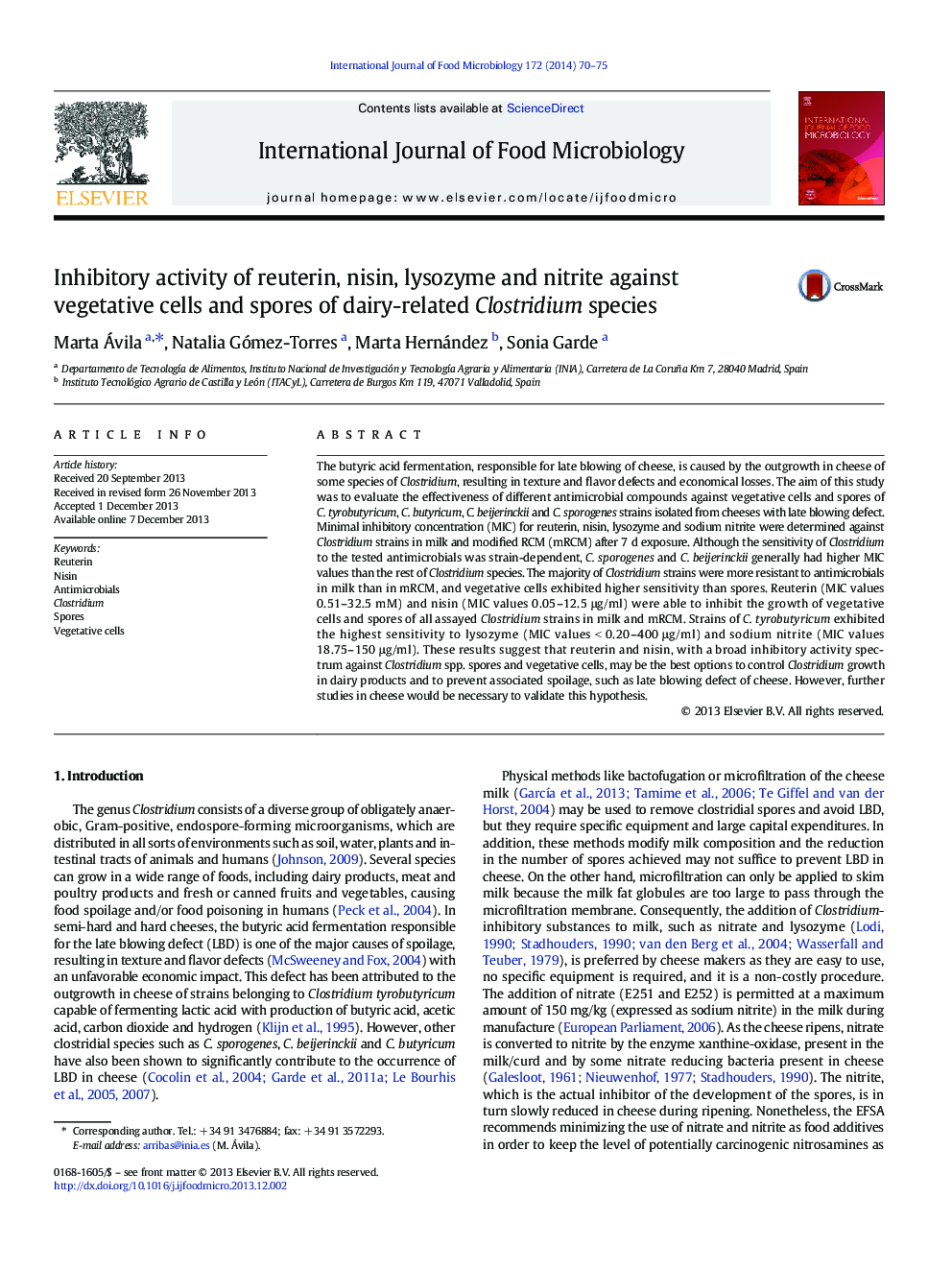| Article ID | Journal | Published Year | Pages | File Type |
|---|---|---|---|---|
| 6290116 | International Journal of Food Microbiology | 2014 | 6 Pages |
Abstract
The butyric acid fermentation, responsible for late blowing of cheese, is caused by the outgrowth in cheese of some species of Clostridium, resulting in texture and flavor defects and economical losses. The aim of this study was to evaluate the effectiveness of different antimicrobial compounds against vegetative cells and spores of C. tyrobutyricum, C. butyricum, C. beijerinckii and C. sporogenes strains isolated from cheeses with late blowing defect. Minimal inhibitory concentration (MIC) for reuterin, nisin, lysozyme and sodium nitrite were determined against Clostridium strains in milk and modified RCM (mRCM) after 7 d exposure. Although the sensitivity of Clostridium to the tested antimicrobials was strain-dependent, C. sporogenes and C. beijerinckii generally had higher MIC values than the rest of Clostridium species. The majority of Clostridium strains were more resistant to antimicrobials in milk than in mRCM, and vegetative cells exhibited higher sensitivity than spores. Reuterin (MIC values 0.51-32.5 mM) and nisin (MIC values 0.05-12.5 μg/ml) were able to inhibit the growth of vegetative cells and spores of all assayed Clostridium strains in milk and mRCM. Strains of C. tyrobutyricum exhibited the highest sensitivity to lysozyme (MIC values < 0.20-400 μg/ml) and sodium nitrite (MIC values 18.75-150 μg/ml). These results suggest that reuterin and nisin, with a broad inhibitory activity spectrum against Clostridium spp. spores and vegetative cells, may be the best options to control Clostridium growth in dairy products and to prevent associated spoilage, such as late blowing defect of cheese. However, further studies in cheese would be necessary to validate this hypothesis.
Related Topics
Life Sciences
Agricultural and Biological Sciences
Food Science
Authors
Marta Ávila, Natalia Gómez-Torres, Marta Hernández, Sonia Garde,
